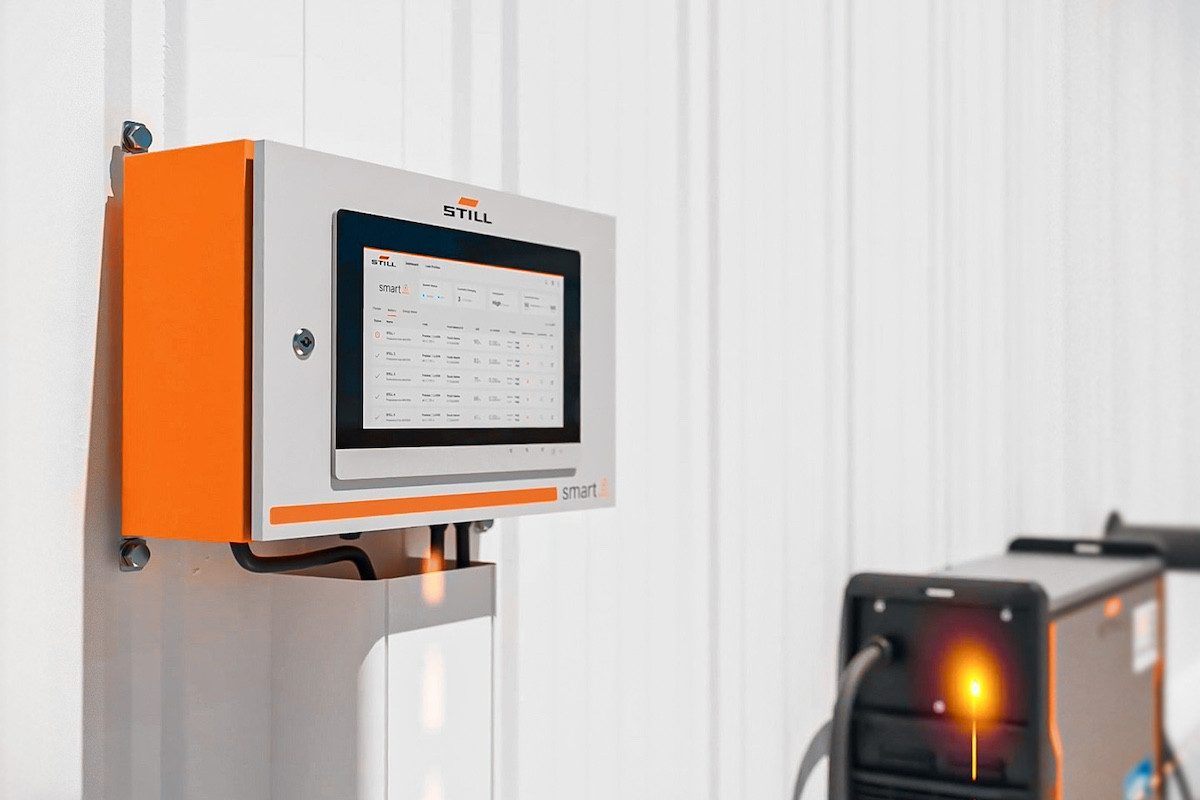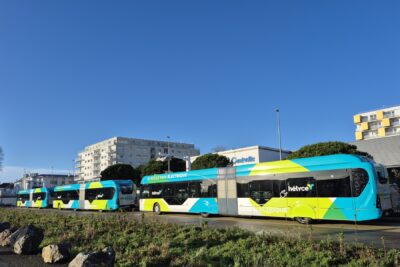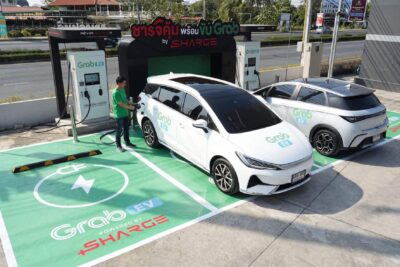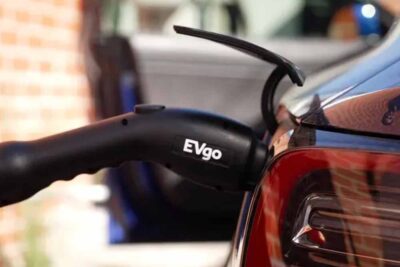Still presents smart fleet charging solution
With the Smart Energy Unit, the Hamburg-based industrial truck manufacturer Still offers a charging management system that allows the battery and charging-related processes of the forklift fleet to be monitored and controlled completely, digitally and transparently. The SEU networks the stationary chargers in the company and ensures efficient energy distribution. This enables charging statuses to be analysed, capacities planned and charging processes prioritised. According to Still, a reference customer with seven lithium-ion charging stations was able to save around 10,000 euros a year in energy costs as a result.
“These load peaks and the resulting high energy costs can be avoided in many cases,” says Gesa Kaatz, energy expert at Hamburg-based intralogistics specialist STILL, adding: “An intelligent charging strategy can be used to monitor and control when and how quickly industrial trucks are charged.”
The Smart Energy Unit (SEU) networks all of a company’s stationary chargers. This allows the customer to determine how best to distribute the energy and, for example, “set charging limits for certain time windows or prioritise chargers”.
“In this particular case, we wanted two of the seven charging stations to provide maximum charging power at all times. This supply must not be compromised, so the other charging stations must have a lower priority,” explains the energy consultant.
The prerequisite for intelligent charging is a lithium-ion battery. “The advantage of lithium-ion batteries is that they can be easily recharged between shifts, making them much more flexible than lead-acid batteries,” writes the intralogistics specialist in its press release. “By switching from lead-acid technology to lithium-ion technology, our reference customer has an additional savings potential of around 20,000 euros per year – in addition to the savings of around 10,000 euros through Smart Charging,” says Kaatz.
However, the Hamburg-based company is not only focussing on battery-electric solutions. The company recently announced the launch of its own production line for warehouse trucks ex works in a fuel cell version. According to Still, it is currently the only manufacturer in the intralogistics industry to produce its own fuel cell systems and integrate them into its vehicles as an option.





0 Comments